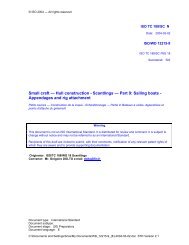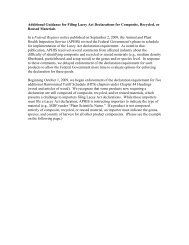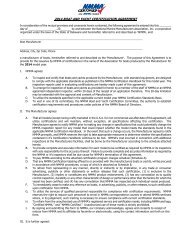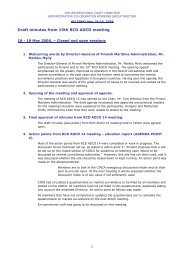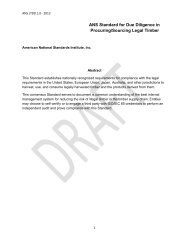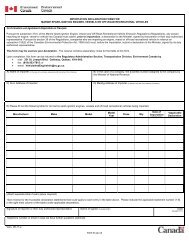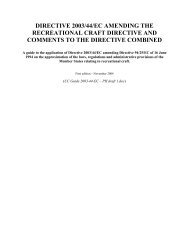Intellectual Property Protection and Enforcement Manual - Ipr-policy.eu
Intellectual Property Protection and Enforcement Manual - Ipr-policy.eu
Intellectual Property Protection and Enforcement Manual - Ipr-policy.eu
You also want an ePaper? Increase the reach of your titles
YUMPU automatically turns print PDFs into web optimized ePapers that Google loves.
Identification of Stolen <strong>Intellectual</strong> <strong>Property</strong><br />
IP owners should assist law enforcement officers in identifying stolen intellectual property. Law<br />
enforcement may call upon an owner representative or expert to examine items obtained during an<br />
investigation to determine their origin or authenticity. Moreover, prosecutors typically seek testimony<br />
from the owners at trial. In certain investigations, law enforcement agents may want to have an IP<br />
owner present during the execution of a search warrant to help the agents identify specific items to<br />
be seized. In those circumstances, the owner’s activities will be strictly limited to those directed by<br />
supervising law enforcement agents.<br />
Results of Internal Investigations or Civil Lawsuits<br />
With Law <strong>Enforcement</strong><br />
IP owners should provide law enforcement with information gathered as a result of internal<br />
investigations into instances of IP theft. Furthermore, unless the proceedings or the information<br />
have been ordered sealed by a court, owners may generally provide law enforcement with evidence<br />
or materials developed during civil IP enforcement actions, including court pleadings, deposition<br />
testimony, documents, <strong>and</strong> written discovery responses.<br />
Law <strong>Enforcement</strong> Task Forces<br />
Federal, state, <strong>and</strong> local law enforcement agencies <strong>and</strong> prosecutors have formed task forces to combat<br />
IP crime <strong>and</strong> to promote information sharing between government <strong>and</strong> industry. Examples include<br />
Secret Service Electronic Crimes Task Forces <strong>and</strong> FBI “Infragard” chapters. Additionally, many areas<br />
have high-tech crime task forces that investigate IP theft. Members of the IP owners’ community are<br />
encouraged to participate in these organizations to establish law enforcement contacts that will enable<br />
law enforcement to respond quickly to incidents of IP theft <strong>and</strong> other crime.<br />
Law <strong>Enforcement</strong> Education <strong>and</strong> Training<br />
<strong>Intellectual</strong> property owners can help protect against counterfeiters by educating law enforcement<br />
officials about the their br<strong>and</strong>s, product lines, <strong>and</strong> mechanisms for determining whether suspect<br />
goods are, in fact, counterfeit. Effectively trained law enforcement officials, who are on the lookout<br />
for counterfeit goods, can supplement an IP owner’s external monitoring program.<br />
Preparation<br />
Have an internal procedure in place on how the company will deal with counterfeit products. Determine<br />
who is responsible for the process <strong>and</strong> who will deal with outside law enforcement. The first instance of<br />
discovering counterfeit products is not the time to start researching who to contact. Develop a working<br />
relationship with local law enforcement as well as with appropriate federal <strong>and</strong> state law enforcement.<br />
Page 16




